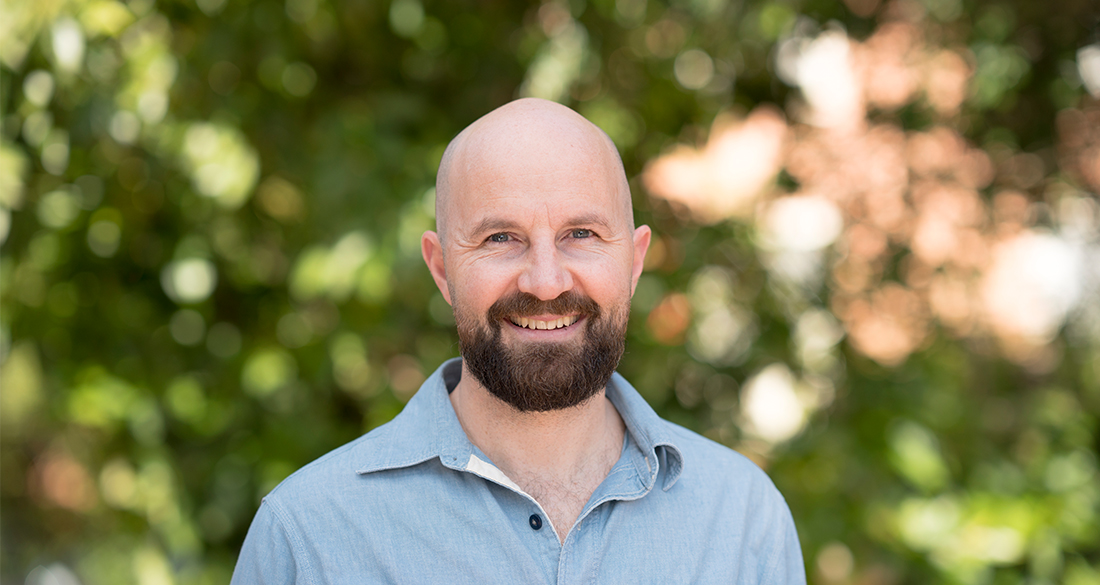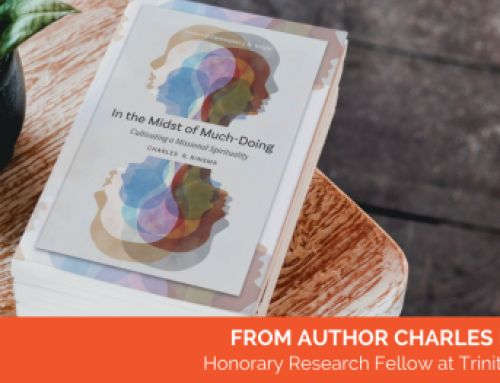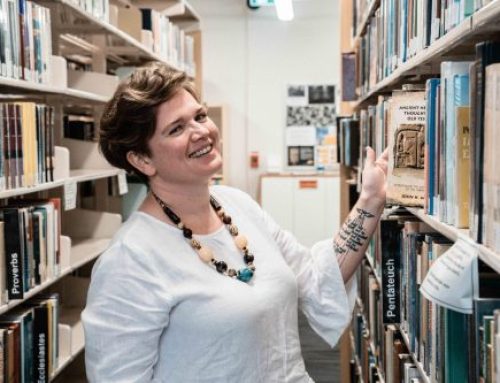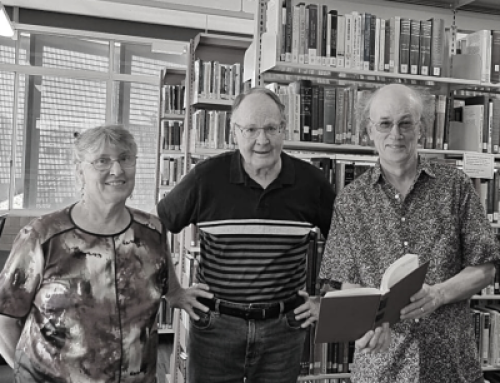Life needs rhythm, doesn’t it? Eating and sleeping occur daily. Weekends and church gatherings happen weekly. And holidays give us much-needed rest a few times a year. These are just a few of life’s rhythms that enable us to be productive, enjoy relationships, and stay sane.
As you’ll know, certain vocations require additional rhythms as well. Athletes train regularly to sustain a peak level of fitness. Musicians practice, often daily, to maintain and develop their hard-earned abilities. Academics create routines for study and research, in order to stay abreast of the ever-changing ideas and possibilities being explored in their chosen fields of expertise.
One aspect of Trinity’s rebranding over the past 3-4 years has been to increase our academic profile as a college to internationally recognised standards. This doesn’t just mean that our faculty have graduated from some of the leading colleges and universities in the world, but that we are committed to rhythms that sustain excellence, and to providing new resources for the academy and the church.
Many of you will know that I am on study leave as I write this. My family and I are currently back in Durham, where I spent five years exploring biblical interpretation and having my paradigms surgically shifted (but not removed) before I began teaching at Trinity.
So, if you’re interested, I thought I’d share with you what I’m up to. If you can’t think of anything less interesting than hearing about someone else’s research leave projects, feel free to read something else. I promise not to be offended.
The first project on my list will be finished in the next fortnight. I have just (last week, in fact) received a contract to publish my dissertation, so I’m making the necessary changes to translate it from what publishers call “dissertationese” into a more reader-friendly book.
My second book project is an idea that came to me 10 years ago while I was washing the dishes. (That’s what the note says at the top of the file, anyway.) In a nutshell: there are 13 psalms with headings that refer to events in the life of David, and I’ve often wondered, “who wrote those headings?” and “how do they help Bible readers?” So I’m working on a book called Psalm Stories that reflects on the dynamic of action (narrative) and reflection (psalms) in the life of David. I’m excited about it, and I have the outline and some juicy ideas, but there’s a lot of reading and thinking yet to be done.
A third project is to take the two books I’ve already written (in 2012 and 2014) and record them as Audible books. This shouldn’t take too long, once I get set up with a quality microphone. I’m also making a few revisions to my book on Job at the request of the publishers; they’ve decided to re-release it as part of a new series, so that’s exciting.
Finally, I’m recording at least half the podcast series for Trinity on Tap: Preaching. There are a few British preachers I’ve asked to participate in the project, because I’d like that resource to have an international and ecumenical flavour.
On top of the research, writing and recording, I’m giving a paper at Durham Uni’s OT seminar in March, and exploring some other theological questions of my own with old colleagues. I’m also making the most of opportunities to pick the brains of church, college, and denominational leaders here in this vibrant city.
And if you’re thinking, “Isn’t Paul the Principal of Trinity College now?” you’re absolutely right. But don’t worry. My colleagues have stepped up to support me during this period of study leave, and I’m still responding to emails and phone/video calls each week.
So, I hope this gives you some insight into what study leave is for, and what kind of projects are undertaken. Will I get all of these things finished in the next 4 months? Maybe not. But here’s hoping.
Dr Paul Jones
Principal of Trinity College Queensland






